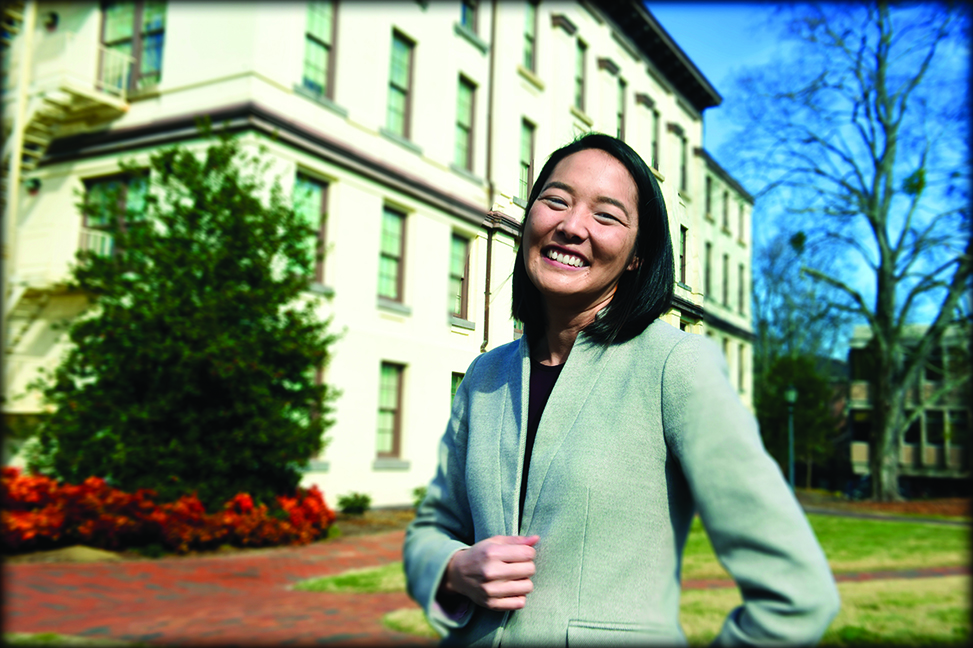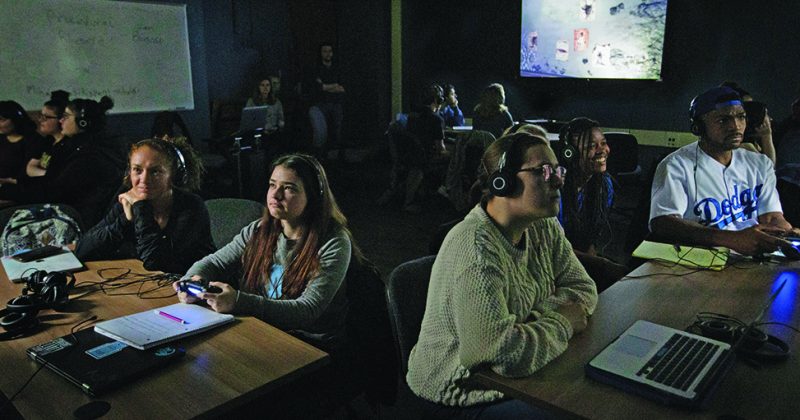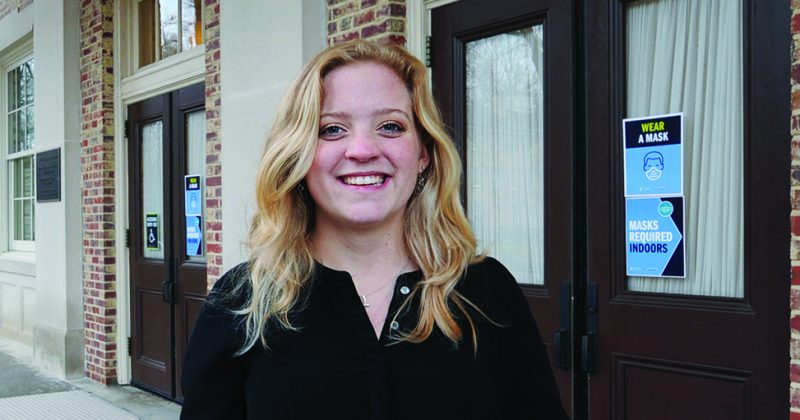
Miyuki Hino in city and regional planning is working with three N.C. communities — Beaufort, Carolina Beach and New Bern — to mitigate the impacts of climate change. (Photo by Donn Young)
Miyuki Hino is helping residents and civic officials find creative ways to deal with the impact of flooding and rising sea levels.
In the face of severe storms and rising sea levels, flood-prone areas are especially vulnerable to the effects of climate change.
Thanks to the work of Carolina environmental social scientist Miyuki Hino, a growing body of data helps identify problem areas and increase communities’ resilience.
“Broadly, I’m interested in how humans are affected by changes in the climate and how we can adapt to a future environment that will look different from the one we have now,” said Hino, an assistant professor in city and regional planning who also holds an adjunct appointment in the Environment, Ecology and Energy Program.
By quantifying how floods and rising sea levels already affect things like the local economy, property values and migration patterns, Hino helps residents and civic officials find creative ways to prepare for future climate challenges. In addition, she examines relevant government programs and policies to determine whether they are effective and equitable and how they could be improved.
Her current research is focused on three North Carolina communities: Beaufort, which is bordered by an estuary; Carolina Beach, which has direct exposure to the ocean; and New Bern, which lies beside the Neuse River and can also be affected by the ocean.
She began by meeting with local officials to understand the challenges they face and their plans for sustaining thriving communities. Increasingly, coastal areas are seeing relatively small, short-lived floods, even on sunny days, that disrupt everyday life. By installing storm drain sensors in flooding hot spots, Hino works with officials to track the rising water and pinpoint when floodwater spills onto the streets. The sensors were developed by technicians at UNC’s Institute of Marine Sciences in collaboration with colleagues at NC State.
“One thing we’re interested in is that the drivers of these kinds of floods can be different from place to place, so what evolves with climate change will probably be different as well,” Hino said. Extremely high tides are a known cause, as is rain coupled with wind blowing in a certain direction, she added.
Hino also plans to examine “climate smart growth” communities, where new construction is built in places that are safe from flooding. This summer, she will delve into the most effective practices and policies used in those areas, such as zoning or strategic incentives, as a way to help other communities apply lessons learned.
Helping communities work toward their goals, large or small, is her motivation. “That is always the lens I use: How can my work be useful to them?” Hino said.
Hino’s research interests have evolved. After earning a bachelor’s degree in chemical engineering from Yale University, she worked with a civil engineer who focused on flooding issues and began to understand that climate change preparation was fairly uncharted territory. She came to realize that moving people out of harm’s way — strategically and equitably — was often necessary but rarely discussed.
That concept, known as managed retreat, provides homeowners with the resources to leave potentially hazardous situations without passing the risk on to someone else. The homeowner, who is in the driver’s seat, works with government or conservation groups to buy their land.
Hino, who earned a Ph.D. in environment and resources from Stanford University and joined the Carolina faculty in 2020, said she has found a research home in Chapel Hill.
“In North Carolina, preparation for more intense hurricanes and heavier rainstorms is already underway, and UNC, with its rich intellectual climate, is a fantastic place to partner with state and local governments as they prepare for a different climate future,” she said. “What we are doing benefits the people around us.”
By Patty Courtright (B.A. ’75, M.A. ’83)
Published in the Spring 2022 issue | Tar Heels Up Close
Read More

Can sustainable plastics clean our plastic-polluted water?
UNC researchers across disciplines are harnessing the power of a…

NEH grant will help develop critical games studies minor
Courtney Rivard, a teaching associate professor in the department of…

When creative arts and political science collide
One high school civics class changed everything for senior Jade…

